Why You Need a CRM System For Your Business
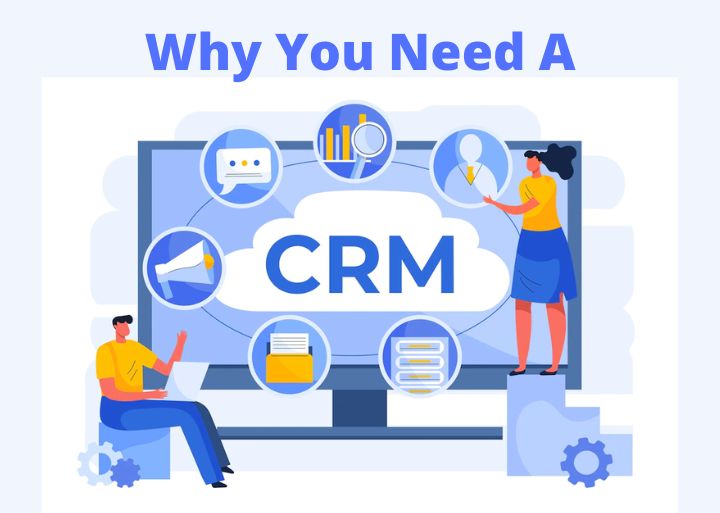
Customers are the heart of your business.
Without a heart, a body stops functioning. The same goes for your business. To keep the heart healthy, you need to satisfy what it demands. For a human being, it is to exercise, eat a balanced diet, and have restful sleep. But what about a business?
The customers of today demand a good shopping experience. 74% of consumers would make purchases with a company based on experiences alone. Customer experience relies heavily on customer engagement—how fulfilled customers feel when interacting with your brand.
If they are reminded of positive emotions like happiness and excitement when thinking of your brand, then you are doing a good job with customer engagement. But how do you invoke these positive emotions?
Love Your Customers
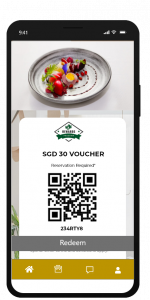
Offer them discounts and promotions. Give them minigames to play. Most importantly, personalise their shopping experience.
84% of customers say that they are likely to buy from brands that treat them like a person and not a number. Not only that, but an unexpected 90% of consumers are willing to share their personal data if it means that they can receive information on products that they’d be interested in.
As a business who values your customers, it will pay to invest in managing customer relationships. Managing one or two leads and customers is still rather simple, but when your customer base grows, you’ll soon find that handling a thousand people is not at all doable.
Call in the big guns: the CRM system.
What Can a CRM System Do For You?
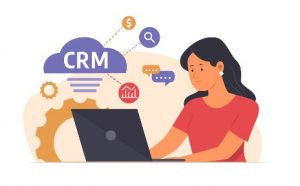
“CRM is a group of tools, technology, and techniques used to help sales and marketing professionals understand their customers better.”
Brian Philips, head of marketing at In Motion Marketing
A CRM system is a software or a set of processes that help you to manage and track customer activity. It stores and monitors variables and metrics such as how long a customer has been loyal to your company, and email addresses and phone numbers.
CRM is not a new thing either—the value of global CRM market in 2020 was estimated to be at around $52.64 billion and will likely grow by over 245% in 2028. 91% of businesses with more than 10 employees are already using a CRM system, and most companies would implement one within their first 5 years of starting operations.
The benefits of CRM is not to be taken lightly—it can help to increase sales by up to 30%, and 64% of companies claim that CRM tools are very impactful to their operations.
What can CRM help you with, and how? Here are 11 reasons why you need a CRM now.
1) Provides Detailed Analysis
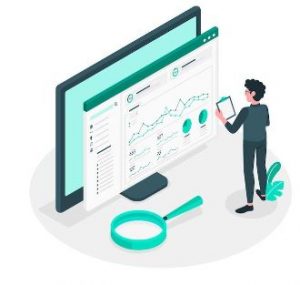
A good CRM system can present collected data in a contextualised, and easy-to-read format by breaking it down into understandable and actionable metrics. At a single glance, you should be able to get a good idea of the effectiveness of your marketing campaign through email clickthrough rates, website visits, and other related metrics.
From this information, you can then improve on and optimise your campaigns accordingly. Your decisions would be backed by hard data—you can expect results that are based off trends and insights rather than through unevidenced predictions alone.
2) Stores Information in Centralised Database
Already, 92% of companies already use databases to store customer information. However, CRM can improve on these databases, by storing all your data in one place.
This makes it easier for your employees to access the information. They don’t have to waste their time and effort sifting through old files and records. 74% of companies say that CRM gives them better access to customer data.
For example, when marketers want to generate leads or when agents want to close sales, they can whip out the required information from the centralised database without any loss in momentum.
3) Segments Customers
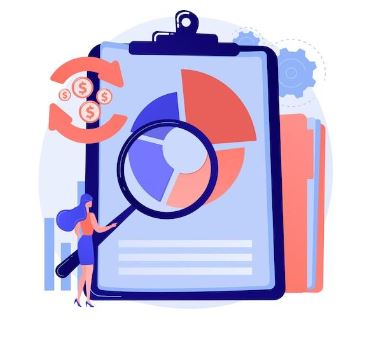
In addition to storing all customer data in a centralised database, a good CRM system can also help you to separate your customer contact list based on criteria. You can segment your customer base by demographics, or distinguishable features of your customers, such as how they interact with your brand.
The CRM software not only shows how sections of your customers are interacting with your brand, but also how often they do.
That way, marketing teams will know how to market to various segments—what channels to use, what kind of marketing campaigns to use. Sales agents can be equipped with the knowledge of what kinds of products a customer likes to effectively convert them and close deals.
4) Nurtures Leads
The best aspect of a CRM software is its marketing automation capabilities. It helps you see the customer journey with a bird’s-eye view, making it easy for you to determine what’s the best course of action to take.
For starters, it’s good at scoring leads based on how easily they can be converted into paying customers. It tracks every interaction that the customer has with your brand and how frequent they are.
From there, it uses artificial intelligence to make a decision about how likely the lead would buy from your company. This saves marketing teams the time it takes to analyse the potentiality of a lead.
A CRM software can also remind marketers to follow up with warm leads to continue nurturing those leads. This ensures that no warm leads fall through the cracks.
In addition to that, a CRM system can automate email and SMS marketing. It takes over drip campaigns and frees up the time employees typically need to send emails to customers and leads. Furthermore, a CRM software can also handle simple customer queries with chatbots.
5) Improves Internal Communications

To aid in the lead generation process, CRM can help to improve communication between your employees. The software can give your employees the ability to send each other personal messages, tag each other in projects, and leave them notes.
With a cloud-based CRM system, your employees can receive all these messages in real-time, and the messages would be all up-to-date.
Better communication between sales and marketing can smooth over any tension between them and have them work seamlessly with each other to generate and convert leads. The more you cultivate the spirit of teamwork between your employees, the more unified and stronger your brand voice will be too.
6) Grants Higher Productivity & Efficiency
With marketing automation to handle drip campaigns and other menial tasks, you can free up a lot of your employees’ time. They can use their effort and time to undertake more creative tasks that a simple bot cannot achieve.
CRM systems can even set up dashboards for employees to access crucial business processes and how well they’re doing. These dashboards can be personalised where marketing teams can see marketing stats, and sales teams see sales stats.
This can better engage employees as they can see whatever they need at one glance, instead of having to click through several files to access the information they need. They’d be more on-the-nose about tasks as they can complete more work with the same amount of time.
7) Betters Customer Experience
Customer experience is key to getting consumers to buy from you. 74% of customers would buy from a brand based on experience alone. Most customers today are looking for personalisation when it comes to experience, and 68% of marketing leaders say that their companies compete on customer experience.
47% of CRM users state that CRM tech has an immense impact on their customer satisfaction rate.
CRM systems help to collect data on customers’ past purchase history, their contact details, and can even help analyse and decide what products the customers would like. This way, you can use the system to push out promotions and deals that would appeal to your customers.
Since data is easily accessible and manageable, stored in a centralised database, marketers and sales agents can grab these pieces of information quickly to aid them in closing deals. If customers know feel that the brand knows them and adjusts their shopping experience to suit them, it makes them feel cared for. You can expect them to return to shop at your brand.
Moreover, you can use their personal data to tailor their drip campaign to their tastes. Send customers promotions and deals that are catered to their interests, and you can even use the CRM to carry out drip campaigns after various triggers, such as when a customer fills up and submits a form on your landing page.
Customers like receiving personalised emails and messages—marketing and advertising emails influence the buying decision of 50.7% of customers. Moreover, 62% of marketers say that personalisation is the most effective technique when it comes to email marketing.
8) Levels Up Customer Retention
With marketing automation to handle drip campaigns and other menial tasks, you can free up a lot of your employees’ time. They can use their effort and time to undertake more creative tasks that a simple bot cannot achieve.
CRM systems can even set up dashboards for employees to access crucial business processes and how well they’re doing. These dashboards can be personalised where marketing teams can see marketing stats, and sales teams see sales stats.
This can better engage employees as they can see whatever they need at one glance, instead of having to click through several files to access the information they need. They’d be more on-the-nose about tasks as they can complete more work with the same amount of time.
9) Automates Sales Reports
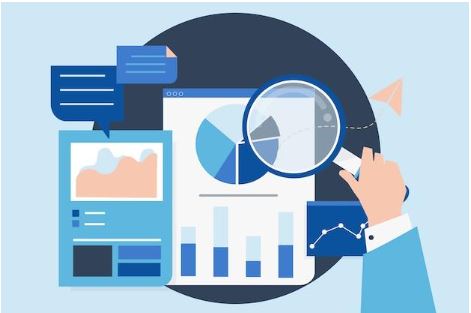
82% of companies use CRM for sales reporting.
Not only can CRM help to track business analytics, it can also generate sales reports that are easy to read and digest. This facet of CRM software can organise data efficiently and allow employees to have a good overview of the sales pipeline and how they can automate it.
Not only can customer data be managed, but employee data can also be displayed and consulted. This can help keep employees evaluate their own performance, as well as to track their quotas and goals.
10) Gives Accurate Sales Forecasting
The best businesses are good predictors of how trends can shift in the future, such as regarding customer behaviour or sales volume. It is always wise to plan a few steps ahead of your competition so that you can respond appropriately to changing market dynamics.
Using past data—like your monthly recurring revenue and year-over-year earnings—and AI, your CRM software can make predictions about changing trends and behaviour. It may be speculation, but it’s data-driven, not-baseless speculation. You can then adjust your future goals based on those numbers.
You will be privy to the kind of leads that are most easily warmed, so that you can spend time and effort into nurturing those leads. Moreover, the system will also inform you which marketing activities are likely to be most profitable. This helps you to generate accurate sales predictions so you can adjust your pipeline estimates.
Already, 50% of organisations are using CRM for accurate sales forecasting.
11) Increases Sales
At the end of the day, you as a businessowner want to increase your sales volume. You’re here to make money. Every benefit that has been discussed leads up to this final point.
With a streamlined sales process, a centralised database, better communication between your employees, you can be sure that your marketing and sales teams can better nurture leads and engage them to turn them into loyal customers.
CRM systems establish a general step-by-step process with regards to the sales pipeline and business procedures. Essentially, your employees can follow it and adapt it as needed.
Also, your CRM system can also promote data accessibility, leading to shorter sales cycles, and more conversions in general.
Bonus: Scalability of Software
If your CRM software is cloud-based in any sense, it can grow with your business. CRM can be scaled up when your business sees more traffic, and it can be scaled even further to extend its help to other departments like customer service.
Keeping the same software would ensure that your employees will know how to use it no matter how long they have been with the company. You wouldn’t need to learn how to use a new software when you want to scale up your business. It saves time and effort required to retrain your employees.
Conclusion
A CRM is pretty much essential if you want to manage your customer relations well. Good customer experiences lead to customer retention and more sales. It relies heavily on centralising your data, making sure that it’s easier for your employees to understand and utilise it to their benefit.
However, you need to obtain customer data before you can even begin using CRM for your business. And that is where we come in.
Vouchermatic can help you to engage your customers with gamification and incentives to engage them enough to want to give you their personal details. If customers can see themselves getting a good shopping experience from you, they’re more than likely to want to associate and interact more with your brand.
Not to mention that we have also integrated with Google Forms so that it’s easy for you to create forms for customers to input details. We can also distribute your vouchers to them via our voucher management system to incentivise your customers.
After getting the information you need, you can funnel it into your CRM software and let it work its magic.
Contact us here to have a little chat, and see how we can help you improve your customer engagement and experience today!
